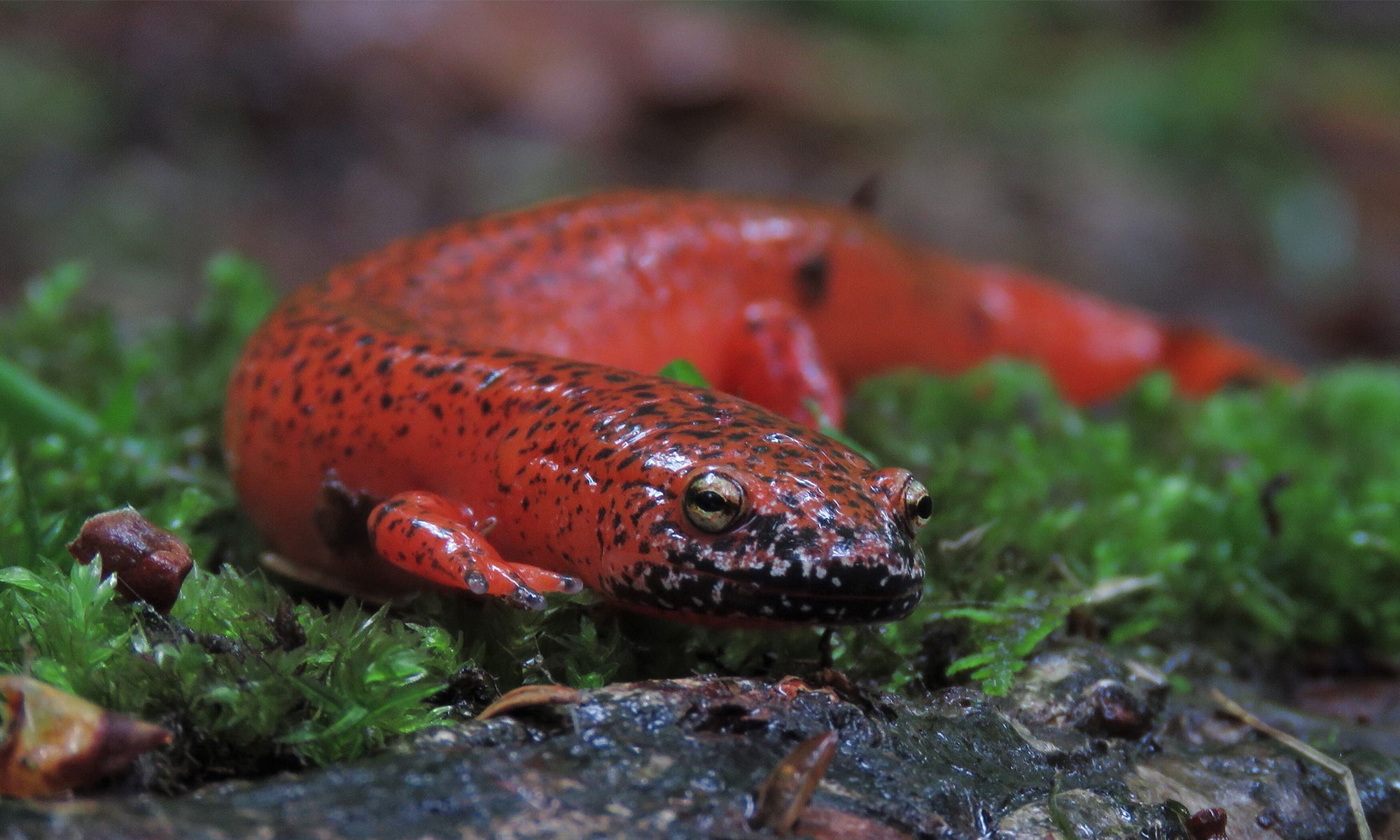
What You Can Do
For starters, don’t touch—unless you are moving them out of harm’s way. Salamanders have absorbent skin and the oils, salts and lotions on our hands can do serious damage. If you are helping them cross a road, move them in the direction they are headed and try to wet your hands first. To not hit them yourself, try to avoid roads that cut through forests and wetlands on wet spring nights.
Never use rat poison, chemical pesticides, herbicides or fungicides around your home. These substances wash off into nearby forests and wetlands and can kill salamanders or cause deformities.
When enjoying the great outdoors avoid DEET, which is extremely harmful to amphibians. Instead, wear bug-repellent net jackets and pants over your clothes. Remember to stay on designated paths to prevent stepping on salamanders as they shelter in the underbrush.
In winter, use sand instead of road salt on slippery pavement. Salt washes off into wetlands during snow melts. Salts can dry up and kill salamanders, and can destroy up to 56 percent of salamander eggs when the water drains to roadside ponds, according to a study by Yale School of Forestry.
Do not catch or buy salamanders from the wild to keep as pets or use as fishing bait.
Reach out to U.S. officials and encourage them to take action to keep the deadly Chytrid fungus out of the U.S. and away from our vulnerable native salamanders.